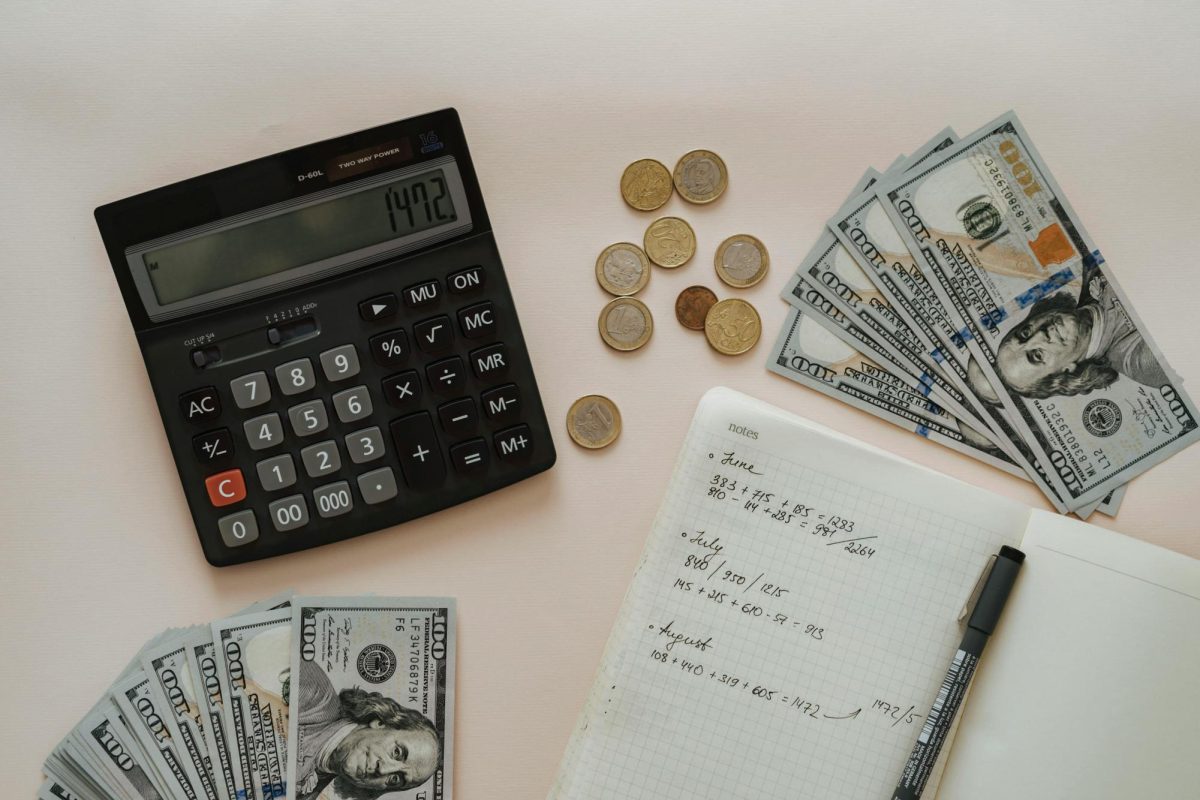Brooke Neilsen ’28 uses her spending money to purchase food off-campus and other recreational goods. However, after the looming possibility of tariffs, Neilsen said, “I try to only spend money on food. I give myself about $10 on anything else throughout the week.” Neilsen is not the only student who spends most of her budgeted money on food and is now cutting back expenses due to the tariffs.
According to the Education Data Initiative, students spend around $400 on off-campus food every month. When a John Carroll student gets tired of the dining hall, they can find themselves spending a hefty chunk of their money on food from other places. President Donald Trump placed tariffs on goods from many countries, which he later rescinded except for the 145% tariff placed on goods from China. If the tariffs are reinstated, students will have to budget when going out to eat and focus on purchasing what they need rather than what they want due to an increase in prices of various products across many industries.
Since 2007, college students have been spending more and more on clothing and accessories, going from 69% to now around 84%. Many students spend money on clothing, especially if they plan to have an internship and need new, professional clothing while working. As tariffs are still implemented for Chinese goods, costs for these goods will increase, as the United States obtains many of their clothing and shoes from Asian countries.
Marius Mihai, who has a Ph.D. in economics and finance and teaches at JCU, commented on the impact tariffs will have on specific goods that mainly come from China. “I would think that car manufacturers may be first; food, you may start seeing because of packaging…intermediate type products are going to be affected because part of it is coming from China.”
Mihai explained that students might not see immediate effects, but “125 percent is applied on everything, so everything from agricultural products to aluminum to packaging to everything.” Over time, these tariffs can greatly affect prices even if Chinese goods are the only ones with tariffs.
Mihai also stressed that price increases in computers could be very possible, depending on the type of computer students plan to purchase. Graduating students are not immune to price increases either and can be greatly affected by the housing market and higher grocery bills as well. “We have this anticipated effect—if you expect prices to increase in the future, you may want to buy more today, which is going to raise prices.”
Many students are told to invest early and Bailey Hemming ’26 has done just that. “I have a lot of money in the stock market, and now I have a lot less. I can cut my losses, but I’ll wait long-term and not touch it.” Mihai agreed that students have to think long-term about their investments, rather than short-term. “If you have a long-term view…you don’t care so much about the short-term fluctuations because you have a 20 to 30 year view.”
There is no single answer to the problem that tariffs will raise for JCU students and all consumers. If students spend now rather than later, they can still be affected by rising prices that will continue to rise as tariffs take effect. JCU students can be more mindful with their purchases, but it will take time for prices to go down. Just as Mihai notes, “It’s very uncertain…expect to be on a roller coaster.”



